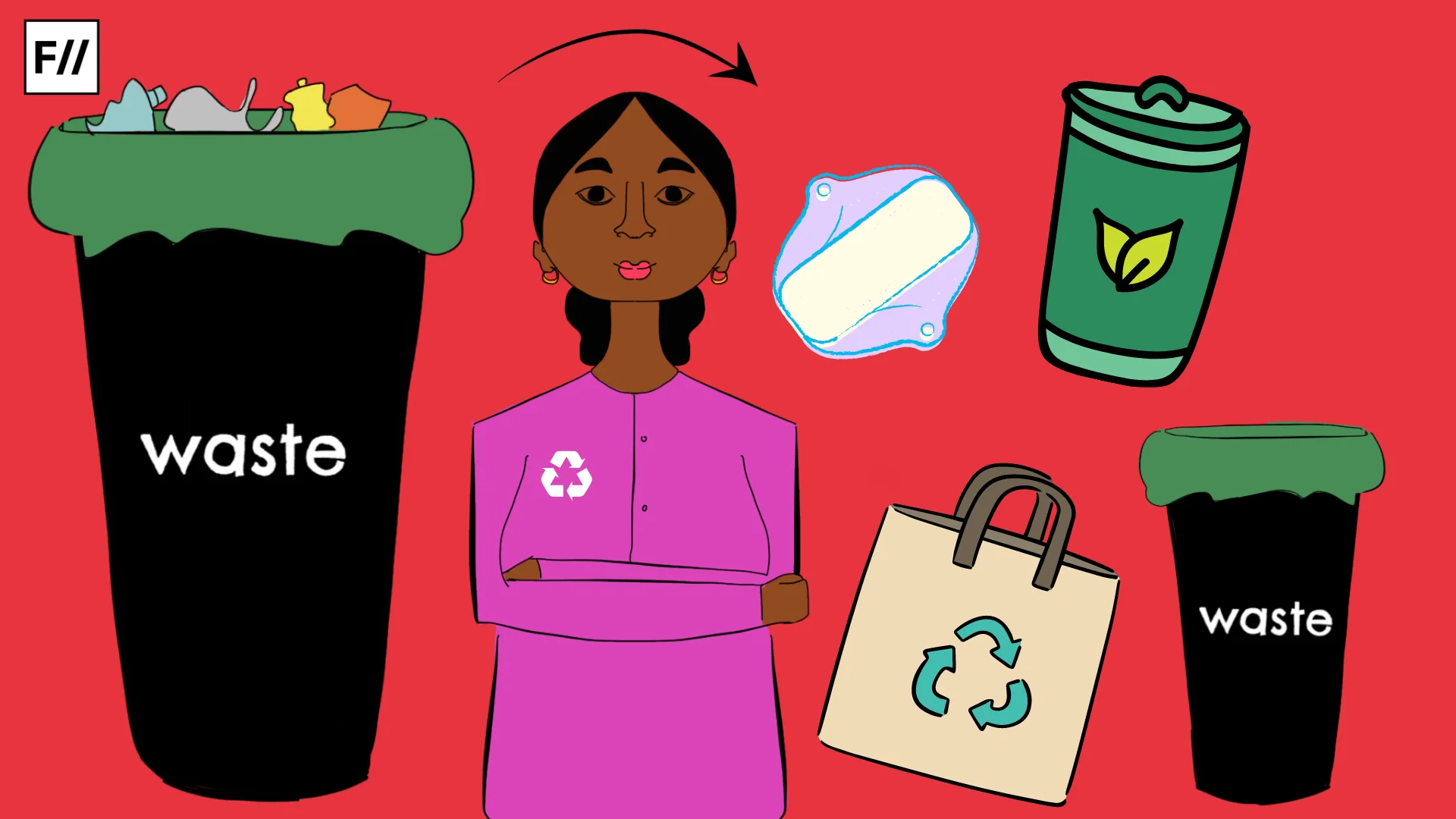TW: Mentions of Sexual Abuse and Rape
On July 30 2020, the High Court of Madhya Pradesh delivered a bizarre order involving a woman who had registered a criminal complaint against a man for sexual harassment. The Court granted bail to the accused on the condition that he would visit the complainant and request her to tie a ‘rakhi’ with a “promise to protect her to the best of his ability for all times to come.” In addition to paying her eleven thousand rupees as a “customary ritual”, the Court also asked the accused to pay up a sum of five thousand rupees for the woman and her son. Although the case was that of molestation, the judge seemed unfazed by the fact that the perpetrator could walk free if he vowed to transform himself into the woman’s “protector.” And when viewed within the larger scheme of things, it reaffirms a troubling narrative pushed forward by Indian judges while sentencing perpetrators of sexual abuse.
One of the most shocking trends is when judges pass lighter sentences or even acquit perpetrators by encouraging compromises either in the form of marriage, good relations or lasting ties between the survivor and abuser. This seems to indicate that a marriage or relationship proposal can be used by the accused as a good enough alibi to erase all notions of violence.
Also read: ‘Where Is The Evidence?’ – A Queer Survivor On The Death Of Justice Due To Voyeuristic Law
Silencing Survivors With Prejudiced Characterisations
In India, survivors of sexual abuse are no strangers to sexist and misogynistic remarks made by courts. Most recently, a judge from the Karnataka High Court faced severe criticism for referring to the conduct of a rape survivor as “unbecoming of an Indian woman”. In the past, there have been many judgments that have perpetuated patriarchal notions and gender stereotypes while interpreting issues of consent, analysing evidence and sentencing abusers, particularly in rape trials. Past decisions have arbitrarily focused on extraneous factors – the previous sexual conduct of the survivor, her relationship with the accused, and aspects of her social life. In this context, one of the most shocking trends is when judges pass lighter sentences or even acquit perpetrators by encouraging compromises either in the form of marriage, good relations or lasting ties between the survivor and abuser. This seems to indicate that a marriage or relationship proposal can be used by the accused as a good enough alibi to erase all notions of violence.
In Kerala, a rape convict priest Robin Vadakumchery also recently attempted at an exception by expressing his wish to marry the survivor and “take care of the child born to her” during a hearing in the Kerala high court.

Marriage As A Mitigating Circumstance
In a case where a fifteen-year-old girl had been raped and impregnated by her neighbour, a Madras High Court judge released the rapist on bail to allow him to attend a “mediation” with the survivor. The judge who was later forced to revoke the order was concerned that the survivor was “nobody’s wife”, “an unwed mother” whose child will soon be a victim of “social stigma”. The judgment thus reinforced rape myths that cannot perceive a woman leading a dignified life separate from her abuser and that which constructs moralist notions around her chastity.
In a case from 2005, popularly known as the Imrana rape case, a village panchayat had forced a woman who had been raped by her father-in-law to void her marriage with her existing husband, marry her father-in-law and then treat her ex-husband as her son. Interestingly, the court in the case refused to take a lenient approach and sentenced the abuser to prison for rape.
As per the latest report of the National Crime Records Bureau, conviction rates in rape cases are abysmally low at 27.2% with the offenders in 94% of cases being someone known to the survivors. Despite this, courts continue to endorse marriage as a remedial measure for sexual assault, not only dismissing the physical and mental trauma borne out of sexual abuse but also blatantly disregarding a woman’s independent existence and her right to bodily autonomy under Article 21 of the Constitution. Judges seem to fixate on validating past or future relationships rather than interpreting the time and context of the sexual act at issue based on a survivor’s testimony.
An argument often cited to justify this approach is that survivors sometimes choose to marry their abusers. However, it is critical to distinguish between a free choice of a survivor as opposed to one where there was no other option. Even assuming this was a genuinely voluntary act, a judge must not begin dictating terms governing the personal lives of the parties, which have a direct and substantial bearing on the outcome of the trial. The Supreme Court had also echoed this view in State of Madhya Pradesh v. Madanlal when it termed such an approach as a “spectacular error” and held that “Courts are to remain absolutely away from this subterfuge to adopt a soft approach to the case.” Previously, the Court, in another matter, has also held that the punishment for offences such as rape “should always be commensurate to the gravity of the offence”. It went on to explicitly note that an “offer of the rapist to marry the victim”, “a compromise entered into between the parties” or the fact that the “victim is married and settled in life cannot be construed as special factors for reducing the sentence prescribed by the statute.”
The Justice Verma Committee Report of 2013 describes marriage as a partnership of equals and recognises a woman’s right to choose her partner in marriage as vital. It buttresses these observations by citing Article 16 of the Universal Declaration of Human Rights, 1948 and Article 23 of the International Covenant on Civil and Political Rights, 1976 which provide that a marriage shall be entered into only with the free and full consent of the intending spouse. Seemingly “voluntary compromises” may be arrived at due to societal stigma, financial difficulties, family pressure, threats, or abuse of positions of power. Therefore, when judges themselves encourage the idea of post-abuse marriage or pressurise survivors into maintaining good relations with their abusers, they are setting a dangerous precedent for future cases.
To illustrate, in a 2019 case, the Kerala High Court agreed to quash criminal proceedings involving the rape of a minor who had subsequently given birth to the abuser’s child. Relying on a similar outcome in a previous judgment by the Court, the judges held that they were exercising their extraordinary inherent powers for the welfare of the survivor to “ensure her better future life.” This excuse of marriage can also be used by perpetrators of sexual abuse to get acquitted or seek extended periods of bail. An affirmative response from the court will not only invalidate any evidence of consent but also negate any opportunity for the survivor to recover from abuse, thereby violating her right to freedom of speech and expression under Article 19 of the Constitution.
Also read: The Quest For Liberty And Dignity: Against Judicial Insensitivity To A Woman’s Autonomy
Survivor Stereotyping And Marriageability As A Determining Factor
Veena Das in her essay titled ‘Sexual Violence, Discursive Formations and the State’ pertinently points out that Indian judges seem to categorise sexual violence in terms of marriage and alliance, and perceive sexual offences as offences against marriage. She notes that our legal system readily considers abuse against virgins as sexual offences because their marriage prospects are diminished after rape. This eagerness however does not show when they treat the rape of women who have had previous sexual relations with men other than their husbands in the same manner. Das reasons that this is because “their value in the matrimonial market is already diminished.” In an empirical study by Professor Mrinal Satish, he identifies that one far-reaching consequence of such sexist rulings is the unwanted disparity in rape sentencing, particularly in the absence of any sentencing guidelines for rape in India. Further, India is yet to recognise marital rape as a crime. Therefore it becomes doubly problematic when judges treat non-compoundable offences such as rape as private matrimonial disputes that can be settled by compromise.
In the past, courts have come down harshly on judges, prosecutors and investigation agencies who view marriage as the answer to sexual abuse. Nevertheless, this seems to be the exception rather than the norm.
A Change In Mindset
The primary role of the judiciary is to administer justice through due process. In the context of sexual abuse cases, this means that courts must first be safe spaces for survivors to raise their concerns, without having “ideal” solutions thrust upon them. In the past, courts have come down harshly on judges, prosecutors and investigation agencies who view marriage as the answer to sexual abuse. Nevertheless, this seems to be the exception rather than the norm. The words of Justice Oliver Wendell Holmes are worth recalling: “Every now and then a man’s mind is stretched by a new idea or sensation, and never shrinks back to its former dimensions.” It is now time for Indian judges to win back the trust of sexual abuse survivors by stretching their minds.
Ashna D is a law student and a feminist with a keen interest in gender justice. She can be found on LinkedIn and Facebook.
Featured Image Source: Simlyn J/Feminism In India




